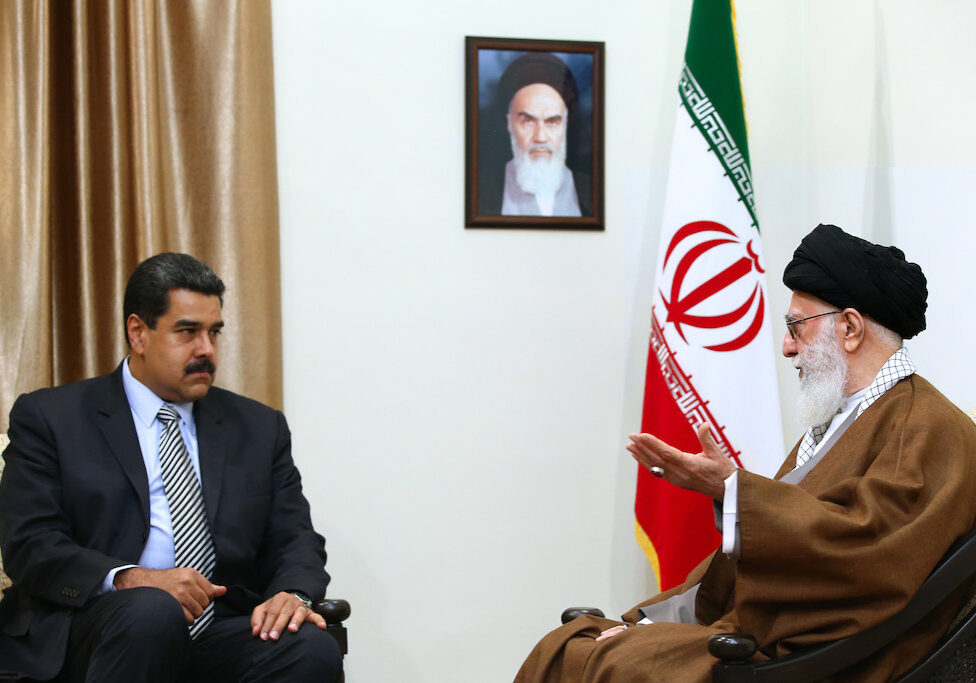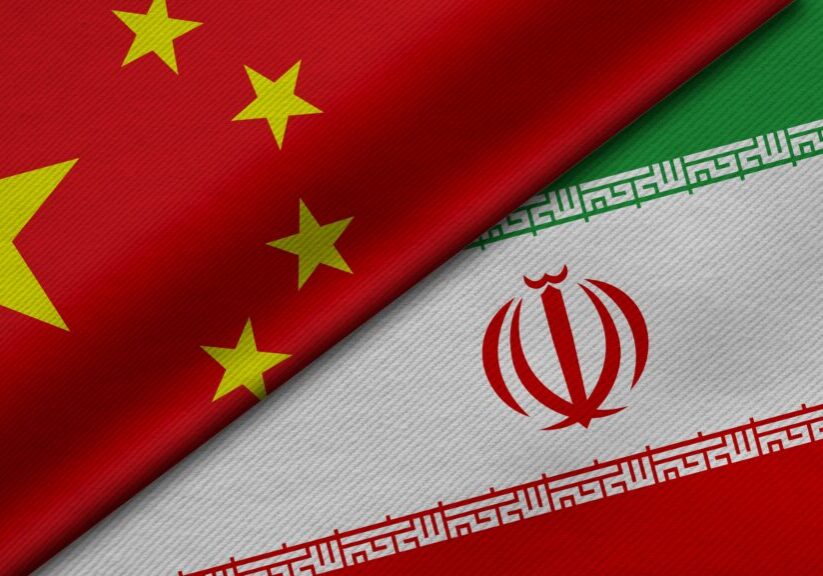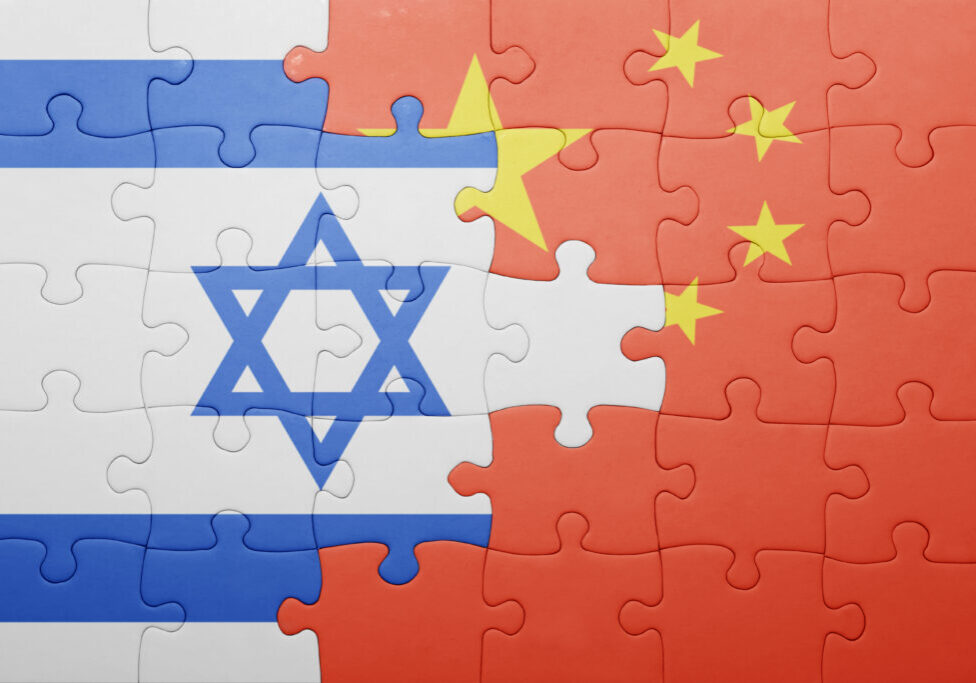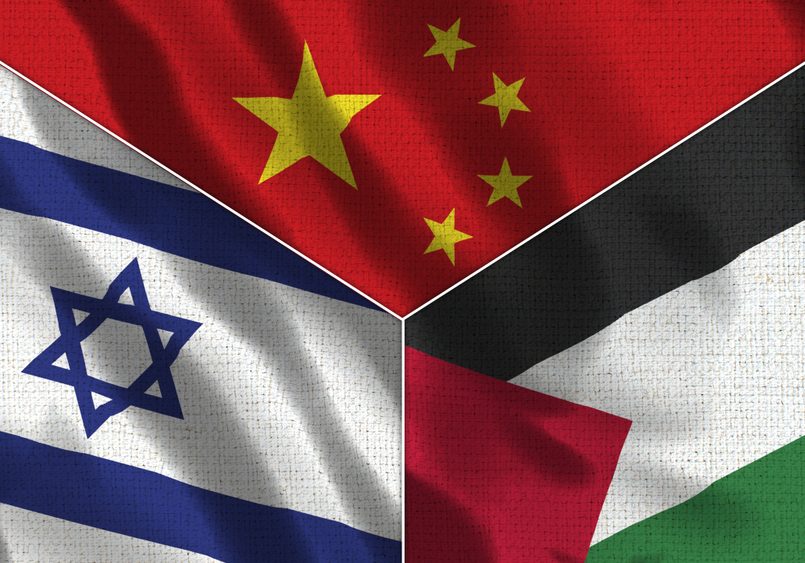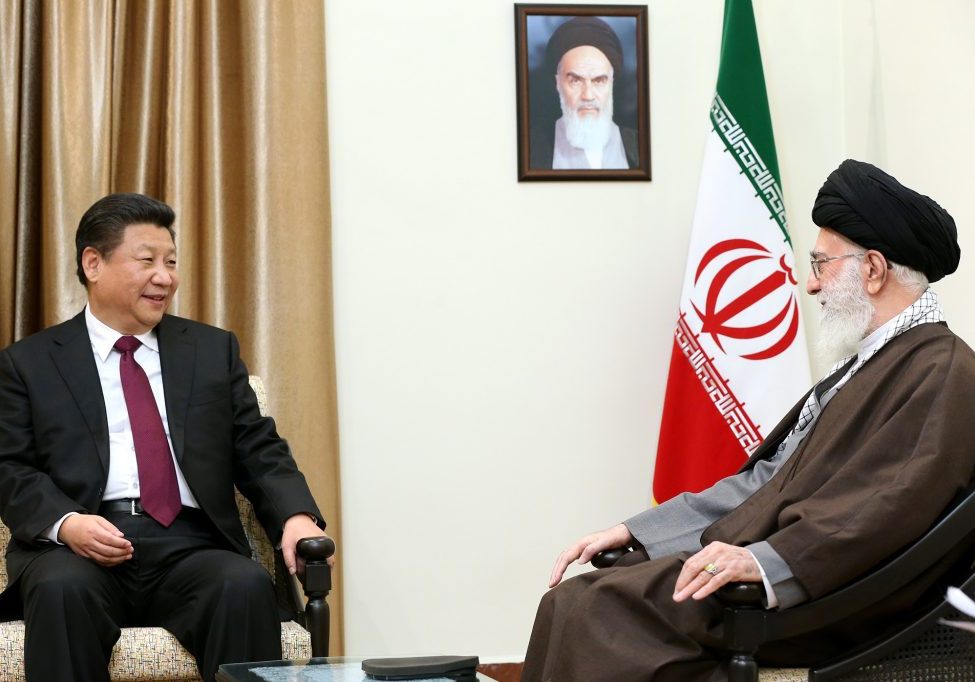Australia/Israel Review
The Beijing Express
Jun 26, 2013 | Yehonathan Tommer
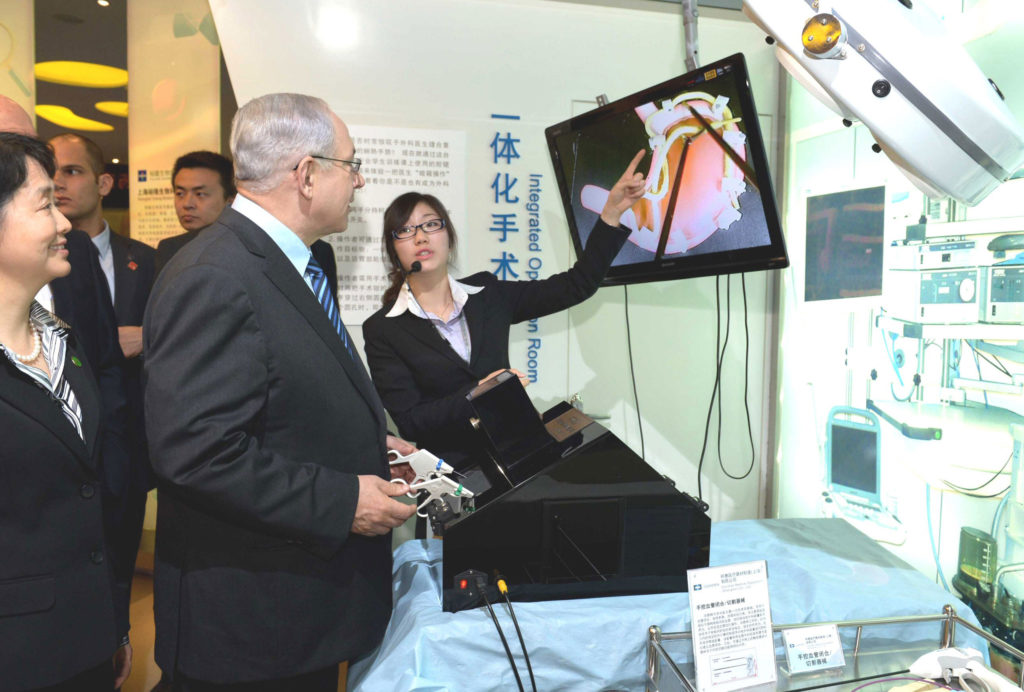
Yehonathan Tommer
Israeli Prime Minister Binyamin Netanyahu can be very pleased with the five-day official visit to China he led in early May – heading a delegation of more than 30 top-ranking business people and government officials from Israel’s financial sector. The visit was termed “very good,” and described as a “springboard” into a significant, long-term upgrade of Israel’s economic ties with China.
However, Israeli commentators warn that once the agreements reached in Beijing are fleshed out by officials in both countries, calibrated ties could pose future political and diplomatic dilemmas for Israel with respect to its network of dependence on Washington, as it has in the past.
No final communique was released by the leaders in Beijing or Jerusalem about the contentious political and diplomatic issues discussed in their closed meetings. A senior Israeli official with whom AIR later spoke declined to comment on China’s refusal to join the American-initiated international sanctions regime to force Iran to abandon its clandestine efforts to produce a nuclear bomb. One commentator, however, did note that Beijing has reduced its Iranian crude oil purchases and increased imports from Saudi Arabia to avoid American sanctions biting Chinese companies trading with Iran.
However, the same senior Israeli official also noted with satisfaction, (and without additional comment on China’s reputed four-point peace plan announced at the end of a three-day visit to China by Palestinian Authority President Mahmoud Abbas) that Beijing recognised Israel’s legitimate security interests in a future settlement creating an independent State of Palestine.
China to open doors to Israeli niche commerce
Netanyahu and his Chinese counterpart Li Keqiang agreed at the signing in Beijing on May 8 to expand their joint financial protocol by some A$425 million – to a total A$2.17 billion – to promote Israeli initiatives and companies operating in Chinese cities and in third countries and to provide state guarantees assisting internationally competitive Israeli niche products to penetrate Chinese markets.
China’s trade with Israel in 2011 totalled A$10.3 billion, and is expected over the next five years to reach A$12.5 billion. This is less than 0.3% of China’s trade turnover, yet is significantly more than China’s trade with Egypt with a population ten times bigger than Israel’s. Turkey’s trade with China is only 48% greater than Israel’s, and Sudan’s trade with China (which practically controls its crude oil production) is only 15% bigger than Israel’s.
The two leaders further agreed to establish a joint, high-level task force comprising Israel’s National Economic Committee (NEC) and the Chinese National Development and Reform Commission (NDRC) to draft the guidelines for a new government-to-government platform that will open the doors to private Israeli business, investment and research, as well as reduce red tape for Israeli companies operating in China. The joint task force will earmark cooperative ventures in niche Israeli technologies of expertise including water conservation, desalination, recycled purified waste waters for agricultural irrigation; green technologies to clean up polluted rivers; renewable energy and technologies to boost increased milk yields per cow in dairy farming.
Israel can be China’s ‘junior partner,’ Netanyahu proposed to his Chinese hosts. Israel’s innovative technologies can be utilised in development regions of China, and Israel can utilise Chinese manufacturing capabilities and management skills in large scale development projects, he said. Both sides see areas of synergy and complementarity. “We think it’s a win-win proposition for both sides,” a senior official in Netanyahu’s office told AIR.
In Shanghai, Netanyahu met with the Mayor Yang Xiong where the two agreed to establish a joint government team to encourage technical cooperation and investments by private companies in Chinese and Israeli R&D agencies. The teams will also focus on the management of Israel’s public health system.
In addition to its Embassy in Beijing, Israel has consul generals in Hong Kong and Shanghai, and will soon open a third consulate in China’s western provinces at Chungdong.
Netanyahu is Israel’s third PM – after Yitzhak Rabin (October 2003) and Ehud Olmert (August 2007) – to visit China since the inception of full diplomatic ties with the People’s Republic of China in January 1992. Netanyahu has previously visited China twice – in August 2007 and in May 1998 – while not in government.
China to Israel: ‘let’s do business’
Both sides appear to have set their eyes on boosted business relations in the future, ending a decade of political and diplomatic frost in the wake of Israel’s volte-face in July 2000 after American pressure forced the cancellation of an arms deal to supply Beijing with an advanced Phalcon AWACS (Airborne Warning and Control System) plane Israel developed jointly with the Americans.
Beijing’s rulers were further angered in 2005 when the US disapproved of Israel’s readiness to upgrade the anti-radar Harpy Unmanned Aerial Vehicles (UAV’s) which it had earlier sold to China.
Israel is vastly more important to China than all of the Arab countries because it can offer China technology and know-how essential to both economic growth and to finding answers to the numerous national, regional and environmental issues that beset the Middle Kingdom. “The Chinese admire Israel for its technological and scientific prowess and they want their economy to benefit from Israeli know-how,” said Haifa University Chinese specialist Yitzhak Shichor, who has studied China for more than four decades. Shichor said Chinese Middle East specialists from leading Chinese research institutes have personally told him, “The Arabs give us only oil. With Israel we can do business, so let’s go ahead and do it.”
The steady stream of Chinese industrial, agro-technology, high-tech and scientific delegations visiting Israel demonstrates China’s confidence in Israeli know how.
China aims at being a full-fledged, developed country by 2050. Israel is considered to be “a stakeholder” in China’s strategy of development, “small in size, but big in innovation” wrote China’s Ambassador in Israel, Gao Yangpin in The Jerusalem Post on the eve of Netanyahu’s visit.
China’s axiomatic goal is to transform its economy from “Made in China” to “Invented in China”. Chinese leaders believe that collaboration with Israel can help immensely in the quest to make this dream come true.
Middle East conflicts marginal to China’s core interests
Meanwhile, according to Shichor, China’s energy-driven interests in the Middle East are shaped by domestic political interests, and not by its core geopolitical interests with respect to East Asia (Japan and the Koreas) and the United States. When events occur in the Middle East, he said, the government usually formulates a policy based on assessments made by various Chinese international relations research institutes.
Beijing traditionally supports Palestinian claims to self-determination and recognises Israel’s legitimate security interests in a future political settlement, but has no influence on Israeli-Palestinian peace negotiations or interest in usurping the American mediating role, he noted.
Shichor dismissed the four-point Chinese “peace plan” released at the end of a three-day State visit to China by Palestinian President Mahmoud Abbas just before Netanyahu’s arrival in Shanghai – and which was interpreted in most international media as signalling a shift toward more proactive Chinese Mideast diplomacy – as simply a “bunch of slogans”. He speculated that the Chinese had probably opposed the timing but reluctantly agreed to host Abbas.
Furthermore, Yoram Evron, China specialist at Tel Aviv University’s Institute of National Security Studies (INSS), told AIR that Beijing’s decision to upgrade its ties with Israel plays a part in China’s global rivalry with the United States. Strengthening ties with Israel – a firm ally of the US – gives China an inroad among Washington’s friends in the Middle East at a time of volatile Arab Islamisation and receding American credibility and capability to ensure regional stability. Playing the Israeli card embarrasses the US and strengthens China’s leverage in its ambitions of eventually displacing American power and influence from the region.
The Chinese are worried by Iran’s clandestine nuclear program and probably privately urge Iranian leaders to diplomatically resolve their conflict with the West, the academic experts AIR consulted agreed. Nonetheless, Israel is the strongest military power in the region, and its security fears from an Iranian nuclear bomb are exaggerated in the view of most Chinese analysts and leaders, they say.
Sources in the Israeli Prime Minister’s office told AIR that while Netanyahu was unlikely to have moved China from its declared position on Iran, it was important for Chinese leaders to have heard the Israeli leader’s arguments first hand – especially with respect to why an Iranian nuclear capability threatens Israel and the rest of the world and what international action has to be taken to prevent Teheran from acquiring nuclear weapons.
Tags: China

